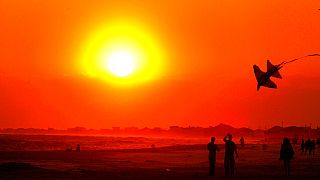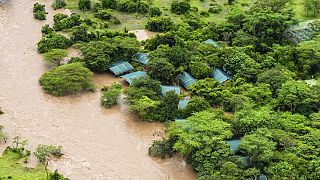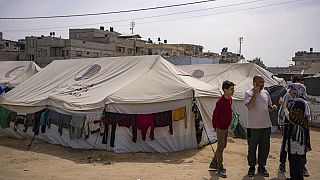Drought
According to Carlo Buontempo, Director of the Copernicus Climate Change Service, April 2024 marked another milestone in global warming trends. Buontempo noted, "If you look at the temperature it's yet again another record-breaking month, and this means that the sequence, the streak of months, record breaking months that started last year in June is continuing and now we are at the 11th month, so that's one thing and that's true for the global mean average, it is also true for sea surface temperature."
Copernicus, the EU's climate change agency, released data indicating that April 2024 was the hottest on record globally. The surface air temperature averaged 15.03 Celsius, surpassing the April average calculated between 1991 and 2020 by 0.67 degrees. Moreover, this temperature was 1.58% higher than the preindustrial reference point set at the Paris climate summit.
READ ALSO;Excess heat and climate change pose health hazards for global workers
While Europe experienced its second warmest April, other regions saw even greater temperature increases. North America, eastern Asia, parts of the Middle East, parts of South America, and most of Africa were particularly affected.
In Morocco, the effects of rising temperatures are imminent as the country prepares for a heatwave forecasted to hit several provinces from Tuesday to Friday. The General Directorate of Meteorology (DGM) issued an orange alert, warning of temperatures soaring between 40 and 44 degrees Celsius during this period.
This news arrives amidst Morocco's ongoing struggle with drought, now entering its sixth consecutive year. The scarcity of water resources poses significant challenges, especially for the country's rain-dependent agriculture sector.













02:00
Extreme weather pummeling the world
01:25
CAR: Conference aims to achieve peaceful seasonal migration of herds
02:15
Zambian teen teaches climate change lessons through sign language
01:02
Pics of the day: May 15, 2024
01:49
Morocco’s automotive industry shifts gears to prep for EV era
01:00
Thousands in Mali replaster the Mosque of Djenne